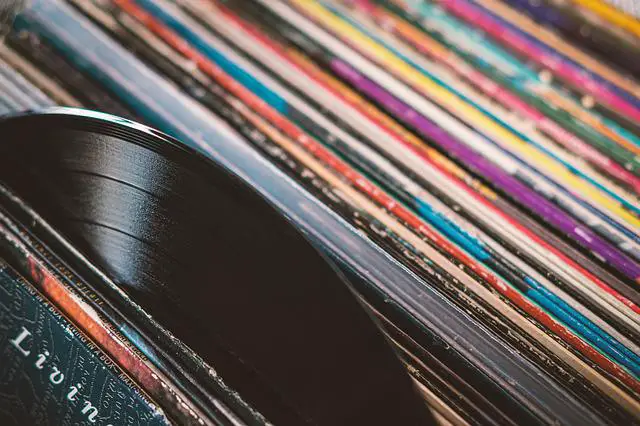Difference Between Ep And Lp
In a nutshell, an LP is a long-playing vinyl record whereas an EP is an extended vinyl record whether it’s in a digital download or a CD.
It is acceptable to consider a long play (LP) album as a full-length album, and an extended play (EP) album as a half-album, given that this is essentially what each term means nowadays.
Any musician who is interested in putting out music should be aware of these distinctions and release singles, extended plays (EPs), and full-length albums in any order they see appropriate. When you feel like you have a tale to tell or a significant message to make, an album is a terrific structure to use to tell that narrative or make that point.
Unless you are absolutely certain that each album you put out will be a masterpiece, it is strongly recommended that you employ a diverse strategy when competing in the modern music industry.
These are two fundamental terms that you should be familiar with, whether you are interested in being engaged in the music industry or you are simply a music lover who wants to get even more aware about the way that it defines music.
This is a topic that constantly comes up, both among musicians and fans, and the reality is much more profound than the responses that are typically given. Let us figure out what this riddle is all about and then get to the bottom of why budgets and marketing departments even exist in the first place so you can use that knowledge to your advantage in your professional life.
What’s An Lp?
A long-playing vinyl record is referred to as an LP in the music industry. The name “LP” most commonly refers to a microgroove vinyl record that plays at 33 and one-third rotations per minute (rpm).
These records are still used today, and you will find them extremely prevalent among recordings that have “analogue” sound qualities, as opposed to the digital sounds that were made famous by compact discs in the decades that followed.
What’s EP Anyway?
A musician’s EP album is a collection of songs released to promote their work. It is longer than a single, but not as long as an album (thus the term “extended player” in the EP description). While the number of songs is entirely up to you, the average number is between four and six.
Conventionally, EPs usually released on vinyl, but CDs, digital download EPs, and any other format you can think of are also available. The number of tracks and the manner in which they are released are the most critical aspects of an EP. Any type of musician can create an extended player. An ep can be made by anyone, whether they sing, rap, compose beats, or play an instrument.
How Long Is An EP?
The typical length of an EP in the earlier days was determined mostly by the number of tracks, and it ranged anywhere from three to six songs long on the tracklist.
In most cases, this indicated that the length of the EP ranged from 15 to 22 minutes. As we will see in the following section, the time range and number of songs included on a playlist in the present day might be very different from one another.
Even though there are exceptions in the present day, the norm for the number of tracks on an EP is between three and six, and its length ranges from fifteen to thirty minutes. This is despite the fact that there are exceptions. The objective of the release is being put more into the spotlight, rather than its duration.
Ways Artists Use EP Albums Today
The underlying question is why musicians and record labels bother to release an EP album at all. Let us go over a few of the valid reasons, ones that you may use to your advantage yourself.
#1. To Maintain A Release Schedule
Increasing the size of your fan base is essential, but so is keeping the supporters you already have engaged and ensuring their continued satisfaction.
Having a regular and dependable schedule for the release of new music is one method for accomplishing this goal. There are situations when you might not have enough material ready, or you could wish to placate listeners by playing tracks from the “B-side.”
You can promote these releases to your devoted supporters without running the risk of introducing new fans to content that does not do your greatest work justice. Recording them, producing them, and promoting them to your intended audience all cost less money. This maintains the interest of your fan base till your subsequent critically acclaimed album is released and you launch your subsequent tour.
#2. In Order to Comply with an Unsolicited Contract
There have been instances in which musicians have agreed to a contract with a record label that stipulates, for instance, the release of three albums. Whatever the case may be, things are not going as planned, and you are looking for a way out of the deal. As part of the agreement, you are required to fulfil your obligations, which you can do by releasing extended plays.
That almost always refers to brand new music, although there are occasions when it refers to a single together with a collection of remixes produced by other artists. It might take the form of a compilation titled “Best of,” acoustic renditions of your most successful songs, or any number of other ingenious ways to get out of the deal without tarnishing your discography.
#3. A Pre-Studio Format Used By Musicians
Rappers do this, except they call it a “mixtape” instead. Even if your debut studio album is considered your most important work, you can still release independent products like music or merchandise for fans to purchase or use as promotional tools.
Why’s The Difference Between Ep And Lp Important?
Streaming music is the most common way to listen to music these days, despite the fact that vinyl albums are experiencing a resurgence in their popularity.
EPs were frequently utilised as promotional tools back in the day when vinyl records were still widely available for purchase and use. When an artist or record company wanted to draw attention to a select number of songs (or singles) from a musician’s back catalogue, they would occasionally use publicity and sales strategies.
In addition to this, the artist benefited from the publicity that these compilations provided for them.
Singles were frequently re-released as extended plays (EPs), and in many cases, bonus content such as remixes, demos, and other extras was included in the release.
It is now more normal for an extended play (EP) to consist completely of brand new tracks that are added to complete an artist’s discography. Additionally, it is not uncommon for them to be offered in a variety of formats.
As a result of the careful planning that went into creating vinyl LPs, relatively little additional content was ever added to these recordings. To get the most out of the medium, musicians and record labels had to give careful consideration to the order of the tracks and the duration of each one.
When adding tracks, it is possible that you may have to sacrifice the overall audio quality or the impact of the track sequence. It is now normal practice for full-length albums to include bonus tracks ever since the emergence of compact discs and digital downloads as distribution formats.
Because of this, it is crucial to understand the differences between an EP and an LP.







